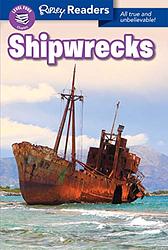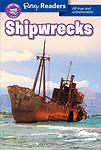Shipwrecks by Akira Yoshimura
The novel is a haunting tale set in a remote medieval Japanese village where the impoverished inhabitants rely on the grim practice of salvaging goods from shipwrecks to survive. The story follows a young boy who eagerly awaits the next shipwreck in the hope that it will bring enough wealth to prevent his family from starving or having to sell his sister into prostitution. As he grapples with the moral dilemma of desiring a disaster for his own gain, the narrative explores themes of fate, survival, and the blurred lines between misfortune and fortune. The stark and somber atmosphere of the novel underscores the harsh realities of life in a community caught in a cycle of desperation and the complex emotions that come with their reliance on the misfortunes of others.
The 6490th greatest book of all time
Ranking Details:
Our ranking system awards points to books based on their appearance and position on curated lists. Here's how it works:
Unranked Lists: For lists without specific rankings, each book receives points equivalent to the list's weight. This approach recognizes the book's inclusion on prestigious lists.
Ranked Lists: Books on ranked lists receive points in two ways:
- Base Points: Initially, every book is awarded points equal to the list's weight, acknowledging its significance.
- Bonus Points: Additionally, books earn bonus points based on their ranking. The total bonus pool, equal to 100% of the list's weight, is distributed among the books, with higher-ranked books receiving more points.
Exponential Distribution: The distribution of bonus points follows an exponential model. This means the top-ranked book (#1) receives significantly more bonus points than those further down the list (e.g., #100). Our algorithm ensures that higher placements are rewarded more generously, reflecting the achievement of a top rank on any given list.
This scoring system ensures that each book's ranking reflects both its presence on multiple lists and its positions within those lists, providing a comprehensive measure of its acclaim and popularity.
Total Points: 66
Since this book was first published in 1982, there is a penalty of 12.8%. The age adjusted score is 57.55.
This is to prevent newer books from reaching super high on the ranked list of the greatest books of all time. The greatest books should also stand the test of time.
- score: 66 -- The Best Novels You’ve Never Read (Weight: 66)

